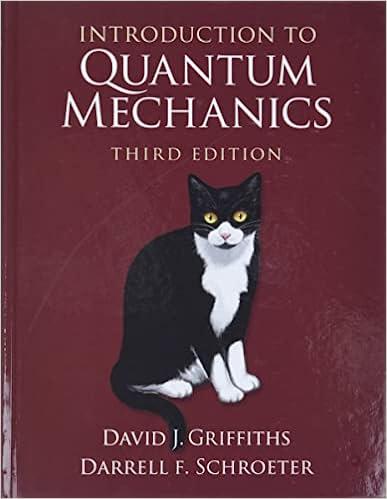Suppose youre given a two-level quantum system whose (time-independent) Hamiltonian H 0 admits just two eigenstates,
Question:
Suppose you’re given a two-level quantum system whose (time-independent) Hamiltonian H0 admits just two eigenstates, Ψa (with energy Ea), and Ψb (with energy Eb). They are orthogonal, normalized, and nondegenerate (assume Ea is the smaller of the two energies). Now we turn on a perturbation H', with the following matrix elements:

where h is some specified constant.
(a) Find the exact eigenvalues of the perturbed Hamiltonian.
(b) Estimate the energies of the perturbed system using second-order perturbation theory.
(c) Estimate the ground state energy of the perturbed system using the variational principle, with a trial function of the form
![]()
where ϕ is an adjustable parameter. Note: Writing the linear combination in this way is just a neat way to guarantee that Ψ is normalized.
(d) Compare your answers to (a), (b), and (c). Why is the variational principle so accurate, in this case?
Step by Step Answer:

Introduction To Quantum Mechanics
ISBN: 9781107189638
3rd Edition
Authors: David J. Griffiths, Darrell F. Schroeter





